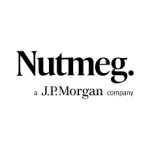Income versus Inflation: consider your options carefully
Last updated: 14/02/2017
As if last month’s inflation increase to its highest level for 22 months was not bad enough, the talk this month of it possibly spiking to 4% or higher next year on the back of the Brexit vote, has created a number of serious concerns for both savers and investors. The result is that the income we generate from our capital is going to become more important than ever. With this in mind, we take a closer look at the impact the ongoing economic climate could have on anyone looking to take an income from their capital, as well as review some of the more popular options being considered by income seekers.
Inflation on the rise
The Consumer Price Index rose from 0.6% to 1.0% in September, the biggest monthly rise in more than 2 years and its highest level for 22 months. Although it is still some way off the Bank of England’s inflationary target of 2%, there also seems to be a general consensus that things are likely to get worse on the inflationary front, before they get better.
“Savings rates at record lows” – no news there then…
So, as if record low savings rates weren’t enough, this recent spike to the headline rate of inflation has added further pressure to the already difficult conditions that savers have had to endure in recent years. In fact, further to this rise, less than half of all savings accounts on offer can either match or beat inflation, resulting in more and more savers seeing the spending power of their cash being eroded. According to the Bank of England, the average easy access account now pays under 0.3%. So with further cuts to savings rates on the cards, inflationary rises are a serious cause for concern.
More bad news for savers
Savers are also facing more bad news since not only did the Bank of England’s cut to the base rate in August to 0.25% offer little hope of savings rates increasing any time soon, this move also had no impact on the pound, which has since fallen significantly against many of the major currencies. Most notably is the fall of sterling against the dollar, which recently saw a 31 year low against our North Atlantic neighbours, as the reality of a hard exit from Europe starts to take hold.
Serious concerns for those in retirement
Whilst a poor exchange rate boosts export orientated businesses and manufacturing, it also drives up inflation as the price of imports rise, with the most affected likely being food, then goods and services. This means that those in retirement will be hit particularly hard since they generally spend higher proportions of their income on these essentials. In fact, inflation is consistently cited as one of the most serious concerns for pensioners, along with the cost of care, running out of money and future changes to the state pension.
How high could inflation go? – the impact of a ‘hard’ Brexit
Experts agree unanimously that the fall in the value of the pound is likely to drive prices up, and the National Institute for Economic Research expects consumer price inflation to peak to 4% in the second half of next year, a significant jump from its current level. Some fund managers believe it could go even higher, possibly reaching 5%. This also means that the Bank of England is very unlikely to increase interest rates, with some suggestions that they will remain at their record low 0.25% until at least 2019.
You must take a view on inflation
This all combines to suggest an extended period of tough times for savers and is perhaps going to be one of the most difficult couple of years for anyone relying on income generated from capital, with cash savers undoubtedly hit the hardest. Although forecasts about short term changes could prove wrong, savers should be wary of focusing on the short term when it is the longer term impact of inflation which causes the most damage.
Remember, inflation is a backward-looking measure, i.e. it measures the rate of inflation over the last 12 months. It tells us little about what will happen in the next 12 months, let alone looking beyond this timeframe, and yet 1,000s of us each day make decisions which tie us in for much longer periods without considering its impact. You must take a view on the impact inflation might have, before you act.
A note on the Personal Savings Allowance
Remember that since the start of the current tax year (6th April 2016), most people receive a personal tax free allowance for interest earnings on savings. For basic rate taxpayers, this is set at £1,000 each tax year, whilst higher rate taxpayers get an allowance of £500. Beyond these allowances, basic rate taxpayers will pay 20 percent on savings income and higher rate taxpayers pay 40 percent (additional rate taxpayers will not receive a personal allowance). Also, note that income from ISAs does not count towards your Personal Savings Allowance (it’s already tax-free).
Income options and your net return
The net return on your capital is the amount you receive after tax and inflation has been taken into account. Thanks to the Personal Savings Allowance, many savers have had the impact of tax on their returns negated. However, inflation is still a critical factor, which is why the current economic backdrop should play an important role in deciding which route you decide to take with your capital. We therefore take a look at some of our most popular income options, and see how their returns stack up against the rising cost of living.
Fixed rate bonds
Historically the cornerstone product for many savers, these accounts have probably suffered more than any other in recent times. Consistent reductions in the returns from both short and longer term fixed rates have seen many savers facing significant falls (more than half) in the income they have enjoyed from their maturing fixed rate, when compared to the best on offer from bonds with the same duration available at maturity.
Savers face losing more than 50% of their income
One group that continues to face losing more than 50% of their income is the thousands of savers in the current crop of five year fixed rates that will mature in the coming months. These savers will have enjoyed a fixed rate of interest for the last five years, for example Scottish Widows Bank was paying 4.60% AER. By comparison, our best five year fixed rate currently on offer, from Masthaven Bank, only offers 2.06% AER. That’s a reduction of a staggering 2.54% per year, equivalent to a fall in income of 55%. Needless to say there are not many of us who can withstand this sort of drop in income without it having a significant impact.
To fix or not to fix?
The picture is a similar one for shorter term fixed rates. The best 1 and 2 year fixed rate bonds are currently paying around 1.31% to 1.58%, and although all of these rates are higher than the current rate of inflation, this will not provide a real return if either you are having to use the income to supplement your cost of living (so the actual value of your capital is being eroded), or inflation rises in the coming months and years. With such sharp falls in the level of interest on offer compared to a few years ago, this also means more savers will need to use capital to supplement their income, making their situation even worse over time.
Should you ultimately decide to commit to a fixed rate, then before applying make sure you fully consider the current economic conditions and the impact they might have over the full term of your fixed rate. There are clear inflationary pressures at the moment so you should be confident that rises to the cost of living will not increase significantly during the fixed term period, otherwise any inflation beating returns may well evaporate.
Beware the instant access trap
So as you can see, fixed rate bonds remain at record lows and inflation aside, it is the fall in income that savers are experiencing, especially from longer term fixed rates about to mature, that is causing the greatest concern. This has also resulted in a number of maturing fixed rate bondholders moving away from medium to longer term fixed rates in favour of instant access accounts, on the basis that something might happen relatively soon which will then spur them on to taking further action. This course of action currently offers little or no prospect of any real growth on your capital, your income will be considerably lower than from a fixed rate bond, interest rates are unlikely to go anywhere for some time, and should inflation move upwards as expected, this could prove to be a very disastrous strategy indeed.
Moving up the risk spectrum
The reality therefore is that savers sitting in cash will therefore continue to struggle to generate a real return, regardless of whether they remain in instant access savings or commit to a fixed rate of interest. This is likely to result in a rise in the numbers looking towards riskier assets to stand any chance of generating an inflation-adjusted real return, especially for income seekers who need to maintain a higher level of income to support their cost of living.
Savers looking to investments
Whilst the combination of low fixed rates and the potential for high inflation may force more of us to consider investing, this raises the difficult question of taking on more risk in an attempt to replicate historical levels of income enjoyed from deposit based products. Although most investments only offer a variable income, the fixed monthly income (currently 0.42% per month, equivalent to 5.04% per year) from Investec’s FTSE 100 Enhanced Income Plan has been a very popular choice with our investors. The plan also includes conditional capital protection, so your capital is returned at the end of the fixed term unless the FTSE 100 Index falls by more than 50%. This plan is available as an ISA and also accepts ISA transfers and non-ISA investments.
Risk versus reward
It is important to remember that unlike deposit based savings products, this plan puts your capital at risk and if the FTSE does fall more than 50%, you could lose some or all of your initial capital. Also, since it is an investment rather than a deposit-based plan, your initial capital is not covered by the Financial Services Compensation Scheme for default.
In conclusion …
Whatever route you decide to take, there is no escaping the impact of continuing record low savings rates and falling income levels, all to be compounded by the prospect of sharp rises to inflation and the uncertainty that may come with our exit from the European Union. It seems the trade off for capital security for some time to come will be low rates of interest and in all likelihood a negative return in real terms, whilst for those considering using some of their savings to invest, you must make sure you fully understand all of the risks involved before proceeding.
Click here to compare instant access accounts »
Click here to compare fixed rate bonds »
Click here for more information on the Investec Enhanced Income Plan »
Click here to visit our Income Section »
No news, feature article or comment should be seen as a personal recommendation to invest. Prior to making any decision to invest, you should ensure that you are familiar with the risks associated with a particular investment. Fair Investment Company does not offer advice and any investment transacted through us in on a non-advised basis. If you are at all unsure of the suitability of a particular investment, both in respect of its objectives and its risk profile, you should seek independent financial advice.
The Investec Enhanced Income Plan is a structured investment plan which is not capital protected and is not covered by the Financial Services Compensation Scheme (FSCS) for default alone. There is a risk of losing some or all of your initial investment. There is a risk that the company backing the plan or any company associated with the plan may be unable to repay your initial investment and any returns stated. In addition, you may not get back the full amount of your initial investment if the plan is not held for the full term. The past performance of the FTSE 100 Index or any shares listed within the Index is not a guide to their future performance. This investment does not include the same security of capital which is afforded to a deposit account.
Tax treatment of ISAs depends on your individual circumstances and is based on current law which may be subject to change in the future. Always remember to check whether any charges apply before transferring an ISA.
AER stands for the Annual Equivalent Rate and illustrates what the interest rate would be if interest was paid and compounded once each year.
Tags





